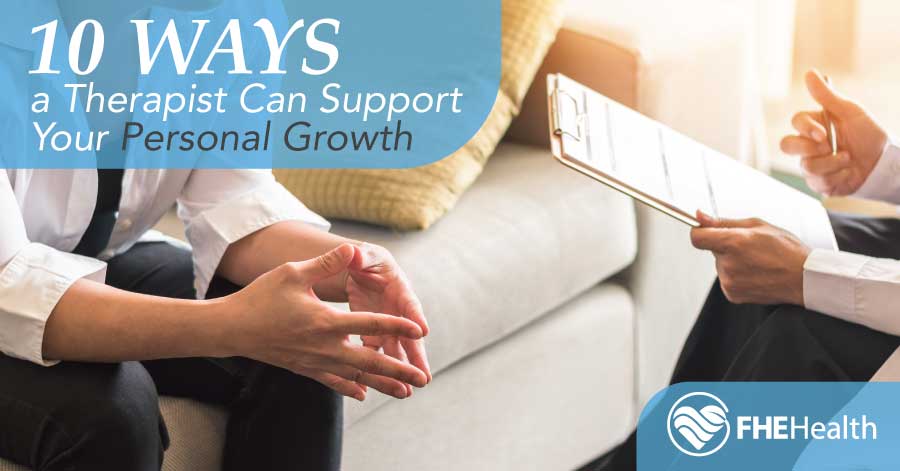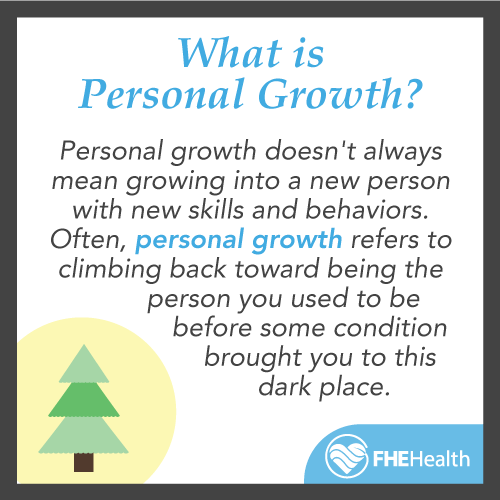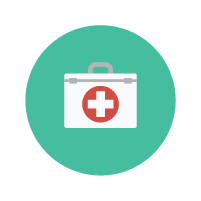
Counseling is often an underrated resource for anyone, but especially for demographics like those at risk for substance abuse, addiction and mental health conditions. But when you’re working through adversity, it can be hard to recognize the good a therapist can do for you and your health. The number of Americans seeking mental health counseling is growing, with 23% of American adults seeing a therapist in 2023. Conditions like anxiety, depression and addiction can cloud the mind and make everything seem pointless. A qualified therapist can be a crucial factor in helping you grow as a person and an invaluable asset when you need counseling. Learn more about working with a therapist for personal growth support to put you on a path toward personal development.
Defining Personal Growth
Personal growth is a long-term process of evolving and developing to enhance overall well-being. In some cases, individuals grow by developing new skills, learning how to better react to certain situations or acquiring more self-confidence and courage. The tools developed during the personal growth process allow people to achieve their goals, confront their fears and take on new challenges In life.
However, personal growth doesn’t simply mean growing into a new person with new skills and behaviors. Personal growth also refers to discovering the person you used to be before some condition brought you to this dark place. In addiction recovery, for example, this type of personal growth is likely as the individual works toward rediscovering their pre-addiction self.

Working With a Therapist for Personal Growth Support
If you’ve ever heard someone use the words “rock bottom” — mainly around the subject of addiction — the need for personal growth therapy becomes more understandable. Certain hardships bring a person down and often make them unrecognizable even to themselves. The good news is that counseling self-improvement assistance can help.
Personal growth therapy can help you rediscover the person you once were. Individuals dealing with addiction, especially, can benefit from professional growth therapy. Recovery from addiction is a combination of physical healing and mental and emotional learning, culminating in personal growth. It’s the idea that you’re physically, mentally and emotionally recovering from addiction while becoming a stronger, better-equipped version of yourself.
If you’re part of these at-risk populations, you may find yourself wondering if you need counseling or how a psychiatrist can help you. Courtesy of FHE Health, here are 10 ways a therapist for professional growth therapy can support you before, during and after treatment for addiction or a mental health disorder.

1. They Can Be Supportive
The first steps to lasting personal growth involve finding a place where you feel comfortable and not judged for what you say. Many addicts and other patients have memories that may be painful or shameful because of a time when they lost control of their actions or emotions as a result of their condition.
The primary role of a therapist is to act as a breathing diary, providing constant support to those in need. Trusted counseling is key to growing as a person and can act as a foundation for recovery.

2. They Can Help You Cope
Coping skills are important areas of growth for people in recovery. Grief and trauma can act as triggers. Therapists help you develop coping methods that don’t present the risk of sliding back into the habits that led you to use, stop taking your medication or engage in whatever your negative behaviors were before entering recovery.

3. They Can Help Identify the Problem
Personal growth can’t happen without self-awareness. That’s why, in addiction treatment, so much emphasis is put on understanding your unique negative habits before trying to address them.
By talking through your issues in counseling, you can get some crucial insight into the issues that have plagued you. It’s likely that no matter what you’re in recovery for, your issues go deeper than just addiction or mental illness.

4. They Can Help Get to the Bottom of Your Issues
The logical next step after exploring your issues is getting to the root causes and trying to treat them. Many people develop substance abuse problems due to family members having the same issues or some sort of trauma in their past. These memories can be painful, but addressing them head on and figuring out why they manifest in the ways that they do is crucial for starting to grow as a person.

5. They Can Help You Build Social Skills
Addicts and people with mental health issues have a high probability of isolating themselves from society, and when they enter recovery, patients are surprised by their lack of ability to form connections with other people. This is common among these groups, and personal growth involves regaining positive social abilities.

6. They Can Help You When You Relapse
A counselor can help you stay grounded when you slip-up, start using or revert back to negative behaviors. In therapy, your mental or behavioral health professional shows you the best way to stay on the road to a full recovery even when you hit a bumpy spot.

7. They Can Help Your Self Image
Low self-esteem is another side effect of substance abuse and mental health disorders. People feel worthless, partly as a result of the stigma that society places on these diseases. Therapists are trained to help clients realize their worth.

8. They Can Help You Focus on Recovery
Recovery from mental health disorders or addiction isn’t easy, and there will be distractions. When you’re in recovery, counseling can help keep you focused on the goal by ensuring nothing else in your life is taking precedence.

9. They Can Help You Mend Relationships
We mentioned the social isolation that people often experience in recovery. Much of this can manifest in damage to relationships with friends and family. Counseling during rehab can help you redevelop the ability to communicate and rebuild that supportive community structure that’s needed for lifelong recovery.

10. They Can Help You Make Healthier Choices
Personal growth means developing habits that are conducive to recovery and not risking your health by avoiding positive choices that support comprehensive, holistic recovery. From nutrition to recreation, a therapist can help you build the tools you need to stay on your journey towards lasting recovery.
Why You Need Counseling During Rehab
According to the UNC School of Medicine, a clinical rehab counselor is someone who helps patients reach their goals of independence and comprehensive health. This is important for a wide variety of at-risk people, but those in inpatient treatment may get the most out of having access to these professionals.
Inpatient treatment, whether for a mental health disorder or addiction to one or more substances, is a period where patients need to be focused but are also in an extremely fragile emotional state. It takes comprehensive support, medically and therapeutically, to spark the personal growth needed for lifelong recovery.
Interested in learning more about why you need counseling while in recovery for addiction or a mental health condition? Contact FHE Health today for more information and to speak to a member of our staff who can help you better understand the services we provide and how you can take advantage of them to take the next step on your path to wellness.






